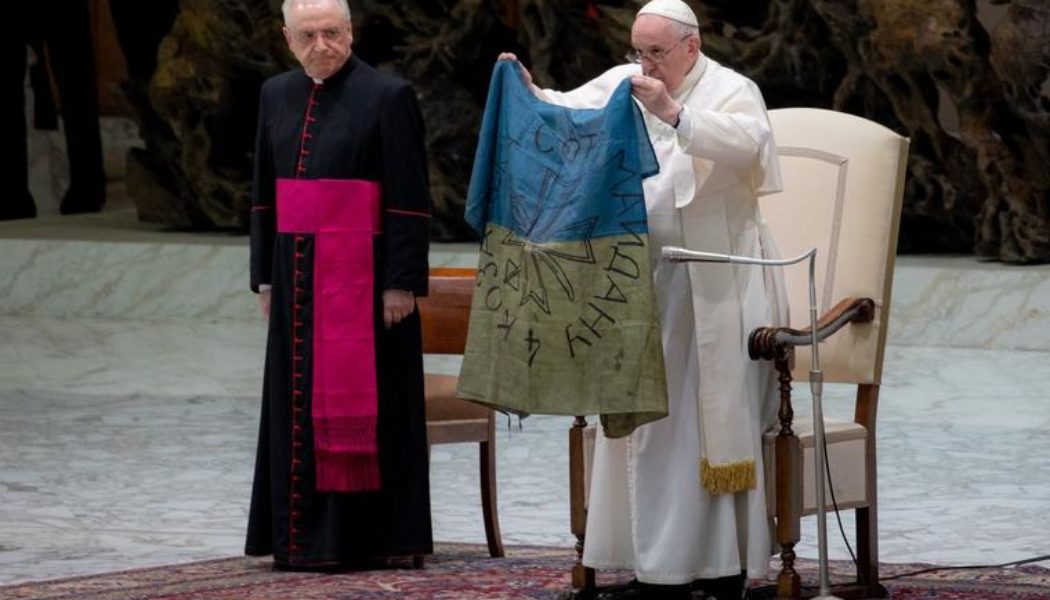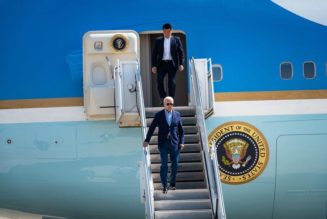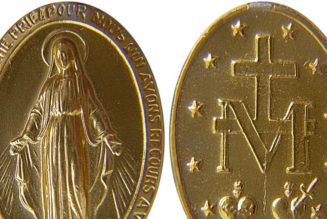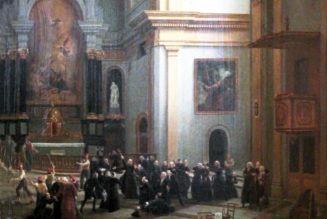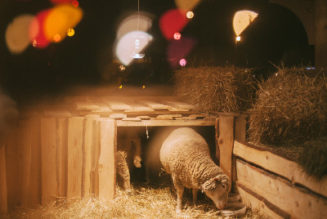
After years of causing disappointment, even offense, to Ukrainians — especially Ukrainian Catholics — it was not expected that relations with Ukraine could deteriorate for Pope Francis.
But they did.
That things are bad does not mean that they cannot get worse.
Much worse.
On Saturday, excerpts from a forthcoming TV interview were released in which the Holy Father called for Ukraine to have “the courage of the white flag” and “negotiate before things get worse.” News of the “white-flag” advice made headlines the world over.
Within hours, that unleashed a barrage of angry reaction from the Ukrainian government and Ukrainian Catholics, that Pope Francis would call upon them to raise the white flag of surrender.
‘White Flag’ Has Other Apparent Meanings
The Holy See press spokesman went into urgent damage control mode, explaining that the Holy Father’s use of the term “white flag” did not mean, as it customarily does in the context of war, “surrender.” Rather, he intended another, lesser known, meaning of “white flag,” namely, “cessation of hostilities, a truce reached with the courage of negotiation.”
Few appeared convinced by this novel explanation. The prevailing view seemed to be that “white flag” in the context of war means “surrender.” Indeed, after raising the white flag, the negotiations which usually follow are over the terms of the surrender, to be agreed upon by the conquering power.
So disastrous was the Holy Father’s interview that the attempted clean-up by the press office was inadequate. On Tuesday, the Vatican did what it does when a true catastrophe is at hand, namely, to bring out Secretary of State Cardinal Pietro Parolin to say what Pope Francis should have said in the first place.
Cardinal Parolin told an Italian newspaper that the onus fell on Russia, which “should first and foremost cease fire,” as it is the “aggressor” in an “unjust” war.
“The war unleashed against Ukraine is not the effect of an uncontrollable natural disaster but of human freedom alone, and the same human will that caused this tragedy also has the possibility and responsibility to take steps to put an end to it and pave the way to a diplomatic solution,” Cardinal Parolin said.
History Lesson From Ukraine
The Permanent Synod of the Ukrainian Greek Catholic Church (UGCC) issued a blistering statement Sunday on the papal remarks, not hiding their pain.
“Ukrainians cannot surrender because surrender means death,” said the statement. “The intentions of Putin and Russia are clear and explicit. The aims are not those of one individual: 70% of the Russian population support the genocidal war against Ukraine, as does Patriarch Kirill and the Russian Orthodox Church.”
The bishops of the Ukrainian Church, the largest of the Eastern Catholic Churches, then offered a pointed history lesson to their spiritual father in Rome:
“It is worth mentioning that every Russian occupation of Ukrainian territory leads to the eradication of the Ukrainian Catholic Church, any independent Ukrainian Orthodox Church, and to the suppression of other religions and all institutions and cultural expressions that do not support Russian hegemony.”
There was another history lesson for Pope Francis, too, about strategic issues. The Permanent Synod wondered why anyone would think that Russia will honor a negotiated settlement. Many have forgotten about the Budapest Memorandum of 1994, signed by Russia, Ukraine, the United Kingdom and the United States. The Ukrainians haven’t:
“Recent history has demonstrated that with Putin there will be no true negotiations. Ukraine negotiated away its nuclear arsenal in 1994, at the time the third largest in the world, larger than that of France, the U.K. and China combined. In return Ukraine received security guarantees regarding its territorial integrity (including Crimea) and independence, which Putin was obliged to respect. The 1994 Budapest memorandum signed by Russia, the U.S. and the U.K. is not worth the paper on which it was written. So it will be with any agreement ‘negotiated’ with Putin’s Russia.”
The Permanent Synod concluded, rejecting his “white-flag” advice, “Notwithstanding the suggestions for need for negotiations coming from representatives of different countries, including the Holy Father himself, Ukrainians will continue to defend freedom and dignity to achieve a peace that is just.”
The Permanent Synod statement was issued on Sunday, while the head of the UGCC, His Beatitude Sviatoslav Shevchuk, was the preacher at Sunday Mass at St. Patrick’s Cathedral in New York. He made no reference to the Holy Father’s “white-flag” advice, but sounded an entirely different note:
“We are loved by God, and no enemy can overcome us. We have experienced this during these two years — mutual love, care and protection. Thank you for expressing this love through your prayer, action and sacrifice. Let’s not give up! Hold your checkpoints. Don’t let the devil or enemy propaganda capture your heart, but pray and work, as [my predecessor] His Beatitude Lubomyr Husar commanded us. God’s truth will win; Ukraine will win; do not doubt it!”
The Meaning of Martyrdom?
As is customary after having caused offense in Ukraine, it can be expected that Pope Francis will speak of his closeness to “martyred Ukraine” in the days to come. The Holy See press spokesman used that favored phrase himself.
But the “white-flag” advice puts a new light on what exactly the Holy Father means by “martyred Ukraine.”
Does he mean that Ukraine is suffering something analogous to a martyrdom at the hands of an unjust persecutor? Or does Pope Francis mean that Ukraine should conduct itself as the martyrs often did, offering no resistance in the face of their executioners?
It surely is not the case that the Holy Father wants Ukrainian Catholics to be martyred and driven underground again, as they were from 1946 to 1991, but the Permanent Synod is worried about that happening again.
The willing acceptance, even embrace of martyrdom — think of St. Ignatius of Antioch — has the most venerable precedents, as the lamb is led silent to the slaughter. But acceptance of martyrdom is not an option for public authorities charged with responsibility for the common good. A father of a family can accept martyrdom; he cannot decline to defend his children if he is able.
To What End Negotiations?
Aside from the startling choice to speak of a “white flag,” Pope Francis was speaking about negotiations in a manner that echoes his predecessors. The Venerable Pius XII, just weeks before the start of World War II, cried out, “Nothing is to be lost with peace; everything can be lost with war.”
St. John Paul II called for a negotiated diplomatic solution after Saddam Hussein invaded and annexed Kuwait.
In one sense that is nothing other than Winston Churchill’s “jaw-jaw is better than war-war.” But Churchill knew that “jaw-jaw” with Hitler was not possible; hence, his “never surrender” speech. One can only imagine how he might have greeted “white-flag” advice from Rome during the Battle of Britain. Pius XII never offered it.
The call for negotiations needs some parameters. After Saddam invaded Kuwait, should the Kuwaitis have negotiated the terms of their annexation? Or is the premise of negotiations that the aggressor will cede the fruits of its aggression?
The call for negotiations between Ukraine and Russia is fraught at the moment, given the recent interview that Tucker Carlson conducted with Putin — Cardinal Husar’s warning about “enemy propaganda captur[ing] your heart” is applicable here. There, Putin made the astonishing claim that Poland could have avoided the ravages of invasion if in 1939 it had been willing to cede its territory ahead of time in negotiations with Nazi Germany. In such a reading, negotiations are a form of surrender.
Pope Francis has shown sympathy to some of Putin’s alleged justifications for the invasion of Ukraine. It cannot be that he is applying Putin’s reading of history to the current situation. But Ukrainians are worried — and angry.
